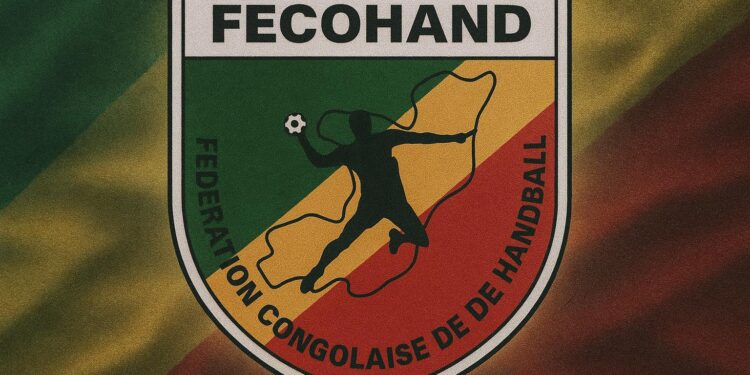A meticulously timed sporting rendez-vous
The Independent Electoral Commission of the Congolese Handball Federation has fixed 16 August as the date for an elective congress that promises to recalibrate the institutional contours of one of Central Africa’s most followed indoor sports. The announcement, relayed by commission chair Mouadh Ben Zaied in his dual capacity as envoy of the International Handball Federation and the African Handball Confederation, brings months of uncertainty to a close for athletes, club officials and development partners. While the setting—the hall of the National Olympic and Sports Committee in Brazzaville—may appear routine, diplomats in the region note that every procedural nuance will be scrutinised as a bellwether of Congo-Brazzaville’s evolving governance ethos.
Internationally supervised electoral calendar
The commission’s communiqué provides an exhaustive timetable that aligns national statutes with continental and global handball jurisprudence. Candidate lists must reach the commission’s secretariat by 17 h 30 on 16 July, after which a vetting phase culminates on 31 July with the public display of validated slates. A slender two-day window for appeals precedes final arbitration by 8 August. Observers from the IHF Legal Commission are expected to arrive in Brazzaville a week prior to the vote, reinforcing what a senior official in Geneva described as “a textbook case of cooperative oversight” (IHF media briefing, May 2024). Such choreography reflects the federation’s determination to deliver results that are unassailable in both form and substance.
Gender parity and list dynamics
One of the most commented-upon clauses in the electoral notice mandates that every executive-committee slate include no fewer than three women. Should a second round prove necessary, the list containing the higher number of female candidates will prevail in the event of another tie, before recourse to the age of the presidential nominee. Sports sociologists at Marien Ngouabi University see the provision as a pragmatic response to the African Union’s Agenda 2063 benchmarks on gender representation. By tying victory to inclusive composition, the commission channels soft pressure toward progressive leadership without provoking accusations of external imposition.
Legal safeguards and compressed appeal windows
The procedural framework employs what regional governance experts term a ‘double-lock’ mechanism. First, eligibility screening is conducted under domestic statutes recalibrated in 2022 to reflect updated IHF compliance clauses. Second, a rapid appeal mechanism limits disputes to forty-eight hours, thereby preventing protracted litigation from paralysing the sporting calendar. According to a Brazzaville-based arbitrator who has served on past commissions, the approach marries legal rigour with the political imperative of maintaining momentum in national leagues that have already faced pandemic-related interruptions.
Soft-power stakes for Brazzaville
Beyond the hardwood court, the congress carries implications for Congo-Brazzaville’s broader diplomatic posture. The government’s support for an internationally benchmarked process dovetails with the administration’s 2022–2026 National Development Plan, which identifies sport as a vector of social cohesion and regional visibility. A smoothly executed vote would reinforce Brazzaville’s narrative of institutional resilience, particularly at a time when several neighbouring federations grapple with disputed mandates. Foreign chancelleries quietly acknowledge that transparent governance in sport can translate into enhanced credibility in parallel arenas, from climate negotiation blocs to trade facilitation forums.
Economic reverberations and sponsorship confidence
Multinational brewers and telecommunications firms that underwrite the domestic league have signalled readiness to renew contracts, conditional on electoral stability. A representative of a Paris-based sports-marketing agency asserts that clear leadership structures reduce transaction costs and permit multi-year grassroots programmes. In this respect, the August conclave is not merely a ballot but a due-diligence instrument for private capital seeking predictability. National sports economists forecast that a consolidated executive committee could unlock additional funding windows from the African Development Bank’s youth-sport facility.
Prospects for grassroots revival
Handball’s popularity in the hinterland has waned in recent years, partly due to logistical challenges and partly because of leadership vacuums at departmental level. Candidates now campaign on pledges to relaunch inter-school leagues, reinvigorate referee training and expand digital broadcasting partnerships. The United Nations Development Programme’s latest human-development report underscores sport’s catalytic role in community health, an argument likely to resonate with delegates charged with selecting the next executive. Should the congress uphold its planned rhythm, a national calendar of youth tournaments is expected to be unveiled by October, aligning with the continental qualifiers set for early 2026.
Anticipation in the diplomatic gallery
Embassies in Brazzaville have discreetly requested observer accreditation, mindful that sport often offers an uncluttered lens through which to gauge administrative capability. One Western envoy notes that the handball vote constitutes “a micro-laboratory of rule-based decision-making in a region where such exercises are not always self-evident.” Against this backdrop, the August congress emerges as an opportunity for Congo-Brazzaville to showcase institutional maturity while fostering a climate conducive to athlete development and international partnership.
Towards the final whistle
As the countdown progresses, stakeholders increasingly converge on a shared aspiration: that the electoral process will deliver a coherent leadership blueprint and re-ignite competitive fervour from Pointe-Noire to Ouesso. In the measured words of commission chair Mouadh Ben Zaied, the objective is “to ensure that sport’s governance reflects the discipline visible on the court.” For a nation that has long leveraged cultural diplomacy, the forthcoming handball ballots may yet prove another deft pass in Brazzaville’s larger game plan.










































